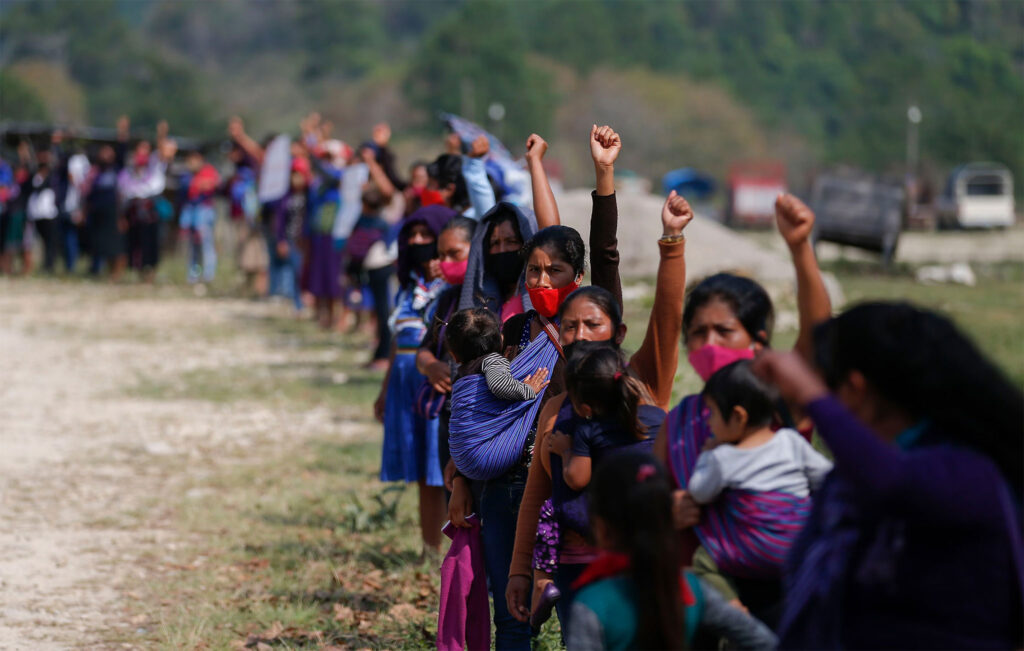This article by Rafael Ramírez originally appeared in the September 24, 2025 edition of El Sol de México.
The Senate of the Republic unanimously approved this Wednesday, with 106 votes, the constitutional reform on extortion submitted by President Claudia Sheinbaum, thereby granting the Congress of the Union the power to issue a General Law that unifies criteria , sanctions, and protocols for assisting victims throughout the country.
According to the ruling, the reform aligns the crime of extortion with other high-impact crimes (such as kidnapping, human trafficking, and enforced disappearance) by establishing that it must be regulated by general law. This legislation will define the criminal offense, its aggravating factors, and related offenses, in addition to establishing minimum and maximum penalties, with the goal of combating impunity and ensuring standardized care for victims.
The document stipulates that Congress will have a maximum of 180 days to issue the corresponding General Law, while the current provisions at the federal and state levels will remain in effect until the new rules are issued.
Presenting the opinion in the forum, the president of the Constitutional Affairs Committee, Óscar Cantón Zetina, a senator from Morena, maintained that this reform responds to the need to confront a crime that has flourished under a high level of impunity and that has adapted to new technologies.
“Extortion affects all of Mexico, in every state and municipality. Its multiple forms and the disparity of state legislation have allowed it to spread like a lethal shadow that sacrifices lives, invades homes, and stifles investment,” he said.
“This reform marks the end of the black market, as cases will be prosecuted ex officio throughout the country and the identity of whistleblowers will be protected.”
Cantón emphasized that the consensus reached reflects the commitment of all political forces. “Today the Senate sends a message of unity and responsibility: extortion will no longer have a refuge, the law will be its limit, and justice will be its destiny,” he emphasized.
During the debate, the PRI supported the reform, but launched strong criticisms of the ruling party and displayed a large banner in the plenary session where it accused former President Andrés Manuel López Obrador, his son “Andy” López Beltrán and other figures, such as the former governor of Chiapas, Rutilio Escandón, the Governor of Tamaulipas, Américo Villarreal and the former Secretary of Security of Tabasco, Hernán N Bermúdez.
PRI Senator Karla Toledo Zamora asserted that amending the Constitution is not enough and demanded a General Law with a budget, national investigation protocols, victim protection mechanisms, and sanctions for negligent authorities.
Her fellow PRI party member, Carolina Viggiano, noted that crime has increased 45 percent so far in 2025 and that 80 percent of the cases come from prisons.
On behalf of the PAN, Senator Verónica Rodríguez Hernández recalled that in the first half of 2025 , 5,887 victims of extortion were registered , the highest number in the last decade, representing an increase of 83 percent.
“Simply putting it in the Constitution doesn’t guarantee the end of the problem. The President is sending us this initiative, but she should also send us a real strategy to tackle insecurity. Three months after her announcement, there are no prevention campaigns or local anti-extortion units,” said Veronica Rodriguez.
For the Citizen Movement, Senator Luis Donaldo Colosio Riojas warned that extortion “erodes the efforts of those who sustain the local economy” and has doubled in the last ten years, going from 400 cases per month in 2015 to more than 850 in 2025.
Senator Luis Donaldo Colosio Riojas said, “It’s about putting victims at the center, strengthening safe reporting channels, and giving local police real tools. The challenge is not just standardizing sanctions, but restoring trust with tangible results.”
Extortion is currently one of the crimes with the greatest social impact in Mexico. According to figures from the Executive Secretariat of the National Public Security System, it is estimated that only one in ten victims file a complaint, resulting in a “black figure” of nearly 97 percent. The phenomenon affects everyone from small businesses to large companies and has been identified as a factor that hinders investment and generates internal displacement.
Experts have pointed out that its expansion is due to three main factors: the diversification of criminal organizations, collusion with authorities, and the absence of unified protocols for reporting and criminal prosecution.
The ruling was passed to the state congresses for ratification.
Oaxaca Nears Self-Sufficiency in Corn
September 30, 2025September 30, 2025
The Secretary of Agri-Food Development and Rural Development said that the goal is to reach 800 thousand tons annually.
Comité 68 Calls March to Mark 57th Anniversary of October 2nd Repression
September 30, 2025
The mobilization will begin at 4:00 PM in the Plaza of the Three Cultures in Tlatelolco in Mexico City.
EZLN Exposes Land Dispossession Supported by Army & Police
September 30, 2025September 30, 2025
The Zapatistas released images of vehicles belonging to the Mexican Army, the Chiapas Prosecutor’s Office, and state and municipal police from Ocosingo “at the service of Huixtán farmers.”
The post Senate Approves President Sheinbaum’s Reform on Extortion appeared first on Mexico Solidarity Media.
From Mexico Solidarity Media via this RSS feed





